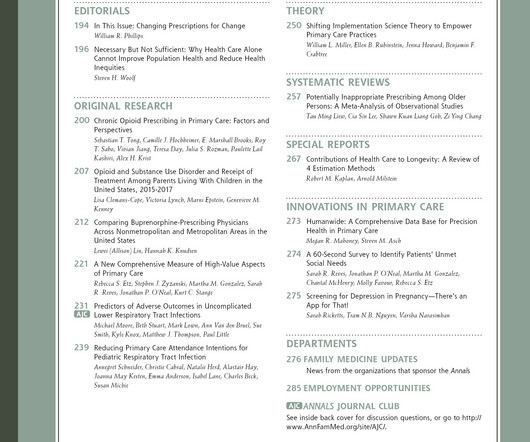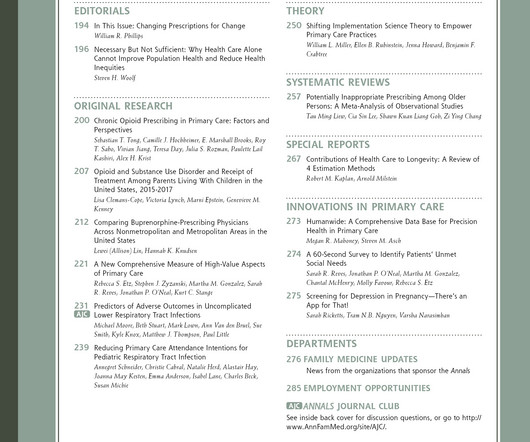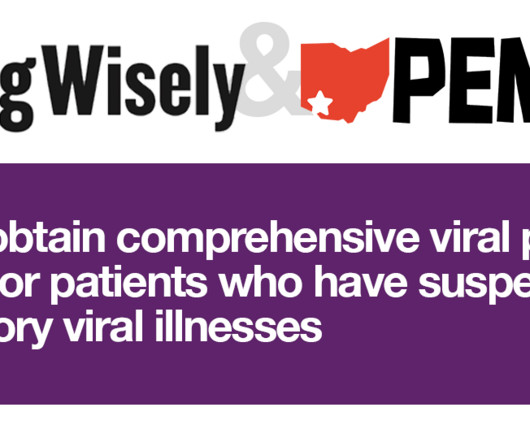Associations between tapering or discontinuing opioids and subsequent pain-related primary care visits [Pain management]
Annals of Family Medicine
NOVEMBER 20, 2024
Objective: To evaluate the associations between opioid dose tapers with continued opioid use and opioid tapers with discontinuation, and subsequent pain-related utilization primary care visits, ED encounters, and hospitalizations. 1.31) and hospitalizations (aIRR 0.74, 95% CI: 0.54-1.02).






















Let's personalize your content